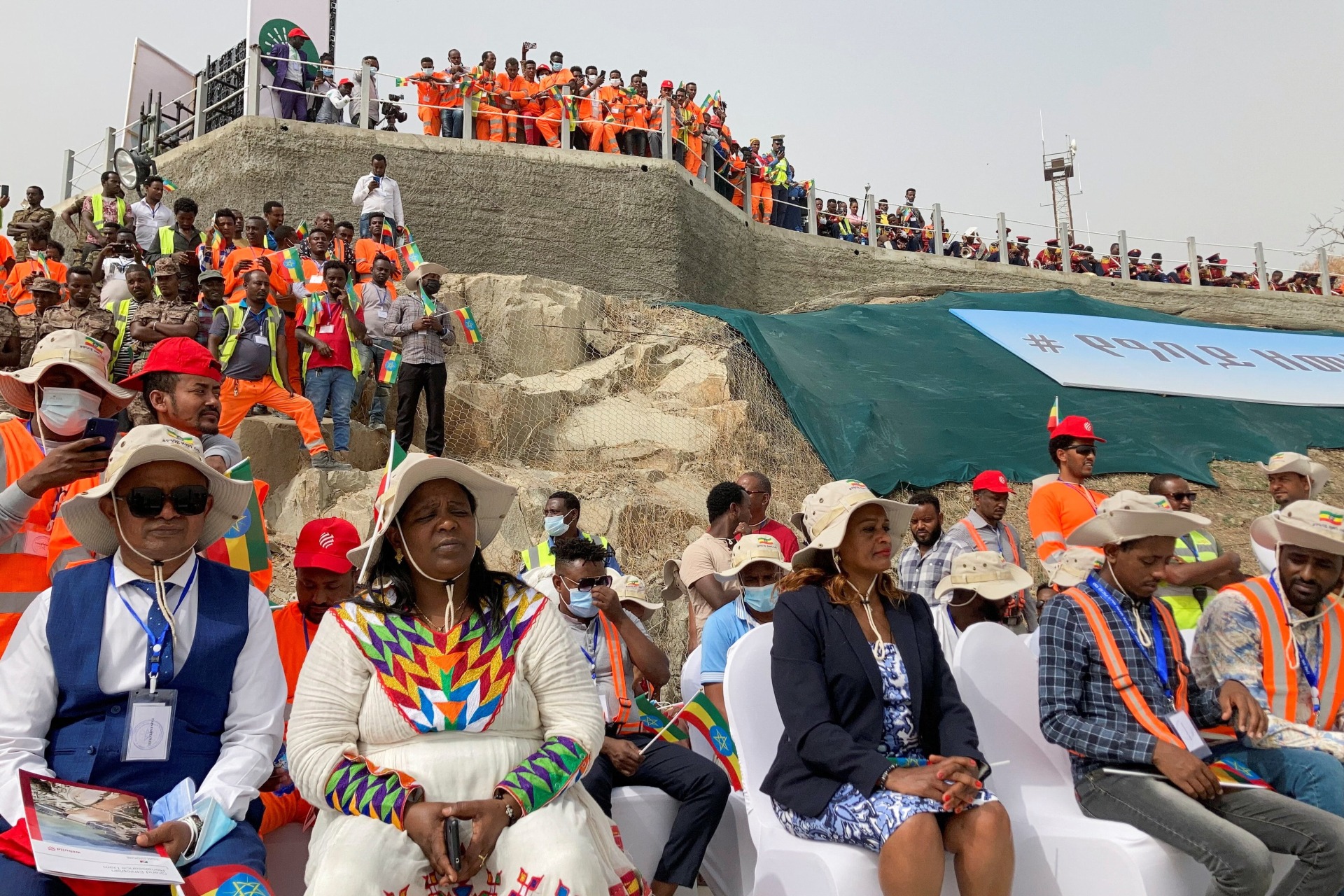Ethiopia’s Crises Are Not Yet in the Past
Ethiopia is moving in the right direction, but still has plenty of work to do to overcome multiple crises.

By experts and staff
- Published
Experts
![]() By Michelle GavinRalph Bunche Senior Fellow for Africa Policy Studies
By Michelle GavinRalph Bunche Senior Fellow for Africa Policy Studies
When the Grand Ethiopian Renaissance Dam (GERD) began generating electricity a few days ago, it marked a triumphant moment for a troubled country. Financed by Ethiopians themselves, the GERD promises to expand access to electricity—more than half of Ethiopia’s population does not have such access now—and make economic growth and opportunity more inclusive. For many Ethiopians, GERD is symbolic of the persistence and determination of the nation itself.
Paired with the images of Prime Minister Abiy Ahmed’s engagements at the recent AU and European Union-Africa Summits, in which he advocated for a stronger African voice in international decision-making, and the news that the Ethiopian parliament voted to lift the state of emergency that had been imposed late last year, the latest developments can seem like a return to form for Ethiopia and its relations with the rest of the world. Before the devastating civil war that began in November 2020, the prevailing narrative about Ethiopia revolved around dynamic reforms, regional leadership, and strong relationships with global powers. By late 2021 it had devolved into a story of atrocities and man-made famine, while Ethiopian officials were issuing dark warnings that foreign forces were undermining the state and sympathizing with terrorists.
No one wants to return to the drumbeat of appalling news or the strained relations, suspicions, and recriminations of the 2021 nadir. Yet Ethiopia’s crises persist. There is still no ceasefire agreement between federal and Tigrayan forces. Costly fighting continues in Afar, where civilians and Eritrean refugees have come under attack. The western border of the Tigray region remains contested. Eritrean forces continue to operate within Ethiopia’s borders. Humanitarian access in Tigray, where conditions have been dire for months, remains woefully inadequate by design. Additional conflicts have continued to displace civilians in other parts of the country, including Oromia, Gambella, and Benishangul Gumuz. Drought is adding to the hardships citizens face and exacerbating competition over resources.
Moreover, the political disagreements at the heart of Ethiopia’s instability are unresolved, and difficult but critical questions around accountability for war crimes and grave human rights abuses remain outstanding. Encouragingly, Prime Minister Abiy recently made remarks indicating that there is a possibility of negotiations with the Tigrayan leadership. His government has also launched a National Dialogue Commission intended to develop proposals aimed at addressing fundamental rifts in the country. But negotiations and dialogues require a measure of inclusivity and trust in order to succeed—elements that remain in short supply in Ethiopia. Even the future of GERD itself is an unresolved issue, as downstream countries continue to express concern about its potential impact on their water supplies. Diplomacy to create a framework for regulating Nile waters has stalled.
Eventually, all these issues need to be addressed, not papered over. All political leaders aim to accentuate the positive, but simply announcing that all is well does not make it so. For the United States and other international actors who wish to see Ethiopia succeed, the latest developments pose a difficult challenge, as they seek to encourage positive developments without buying into a convenient amnesia or illusory stability.
